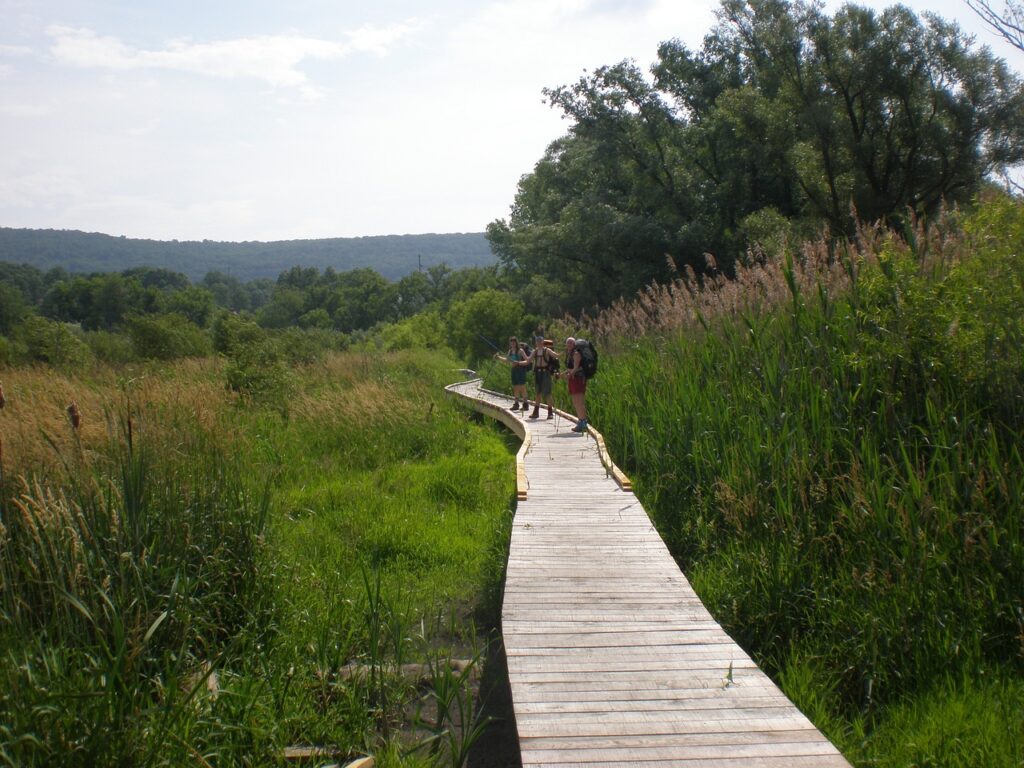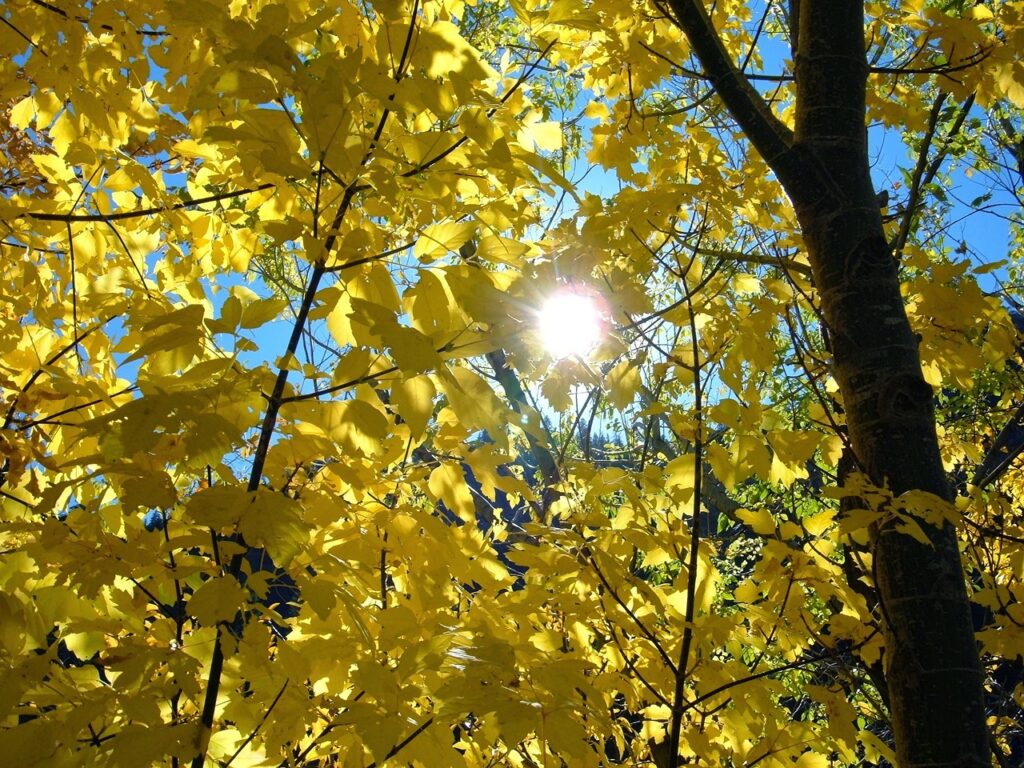Finding Silence and Wellness in the Wild: Nature’s Prescription for Modern Stress

Amidst the relentless pace of the digital age, more and more, people are realizing the profound health benefits of returning to the wild. Nature provides an antidote to the cacophony of our bustling lives. But how exactly does “finding silence” in the wild contribute to our wellness? Let’s delve into the science behind it.
The Science of biophilia

Humans have an innate desire to connect with nature, a concept known as biophilia. The term, introduced by the biologist E.O. Wilson in the 1980s, suggests that humans have an evolutionary bond to nature. This intrinsic connection means that time spent in natural surroundings can significantly enhance our mood and reduce feelings of stress and anxiety.
Further, biophilia posits that our evolutionary history has hardwired us to seek connections with all forms of life. This isn’t just a romantic notion; Stephen R. Kellert, another prominent scientist in the field, expanded on Wilson’s ideas by examining how our natural affinity impacts behavior, resilience, and well-being. Together, their work underscores that our bond with nature is not just emotional but also essential for mental and physiological health.
Natural Settings Lower Cortisol Levels

Cortisol, often dubbed the “stress hormone,” is produced by our adrenal glands as a natural response to various forms of stress, whether physical or emotional. While cortisol has essential functions, such as regulating metabolism and reducing inflammation, continuously elevated cortisol levels due to prolonged stress can have detrimental health effects, ranging from sleep disturbances to weight gain and even cardiovascular problems.
A compelling study published in the journal Frontiers in Psychology delved into the therapeutic effects of nature on these cortisol levels. Researchers discovered that participants who regularly spent time in natural environments, away from the noise and chaos of urban life, showcased marked reductions in their cortisol concentrations. Beyond the mere biochemical implications, lower cortisol levels did more than just lower stress. Participants reported feeling more rejuvenated, experienced better moods, and had a better overall sense of well-being. Not surprising, nature serves as a buffer, reducing the impacts of modern life sand promoting healthier physiological and emotional states.
Improved Cognitive Function

Connecting with nature does more than just alleviate stress—it can significantly sharpen your cognitive abilities. Research conducted at the University of Michigan revealed that spending just an hour in outdoors in a natural setting can boost memory performance and attention spans by an impressive 20%.
The prevailing hypothesis is that while natural environments provide an array of rich sensory experiences—from the rustling of leaves to the distant chirping of birds—they don’t bombard the brain with excessive stimuli as urban settings might. This allows the brain an opportunity to recalibrate, offering it the perfect environment to both unwind and rejuvenate effectively.
Boosting Immune Function with Forest Bathing

Shinrin-yoku, which translates to “forest bathing,” is a Japanese practice that is, simply, the art of spending time in the forest. Researchers in Japan found that immersing oneself in nature increases the number of natural killer cells, a type of white blood cell that combats infections and diseases. The improved immune response is partly attributed to phytoncides, organic compounds with antibacterial properties emitted by trees.
Since then, there have been studies, like those published in the International Journal of Environmental Research and Public Health, that have found associations between access to nature and reduced mortality rates, improved mental health, and reduced physiological markers of stress.
Nature Increases Creativity

The sounds of rustling leaves, flowing water, and chirping birdsmight be more than just a pleasant backdrop; it could be a vital ingredient for boosting our mental health and creativity. Delving deep into this fascinating relationship between nature and our cognitive functions, a study from the University of Kansas found remarkable results.
Backpackers who spent four days enveloped in nature’s embrace, away from the constant buzz and interruptions of electronic devices, demonstrated a remarkable 50% improvement in their creativity scores. This underscores the profound impact that natural environments can have on our brain’s health and capacity for innovative thought.
Physical Health Benefits

Venturing outside, whether it’s at your local park or in the backcountry often involves physical activities, whether it’s hiking, kayaking, or simply walking.
Engaging in these activities not only helps in cardiovascular health but also strengthens muscles, improves balance, and aids in weight management. Turns out, as we’ve seen it also makes us happier and more joyful.
Soundscapes of Nature

While nature provides visual serenity, the peaceful audio offers unique therapeutic benefits. The gentle hum of a forest, the ripple of water, or the song of a nightingale can significantly reduce the cognitive load, offering much needed mental rest.
Research from Brighton and Sussex Medical School found that natural sounds actively engage the brain’s resting network, leading to reflective thought and a state of tranquility. Not only this, but this research offers scientific consensus as to how this occurs.
The nature Pyramid

Just as the food pyramid guides us on our dietary needs, the Nature Pyramid guides us on our nature needs to optimize well being. Timothy Beatley, a professor at the University of Virginia, designed the pyramid which categorizes nature experiences based on their frequency and depth.
Daily Nature: At the pyramid’s base are daily doses of nature. This includes activities like a casual walk in a local park, gardening, or even pausing to listen to birds from your window. These frequent, short bursts are foundational and easily integrated into our daily routines.
Weekly Nature: These are slightly more immersive weekly experiences. Think of spending a few hours hiking in a natural reserve, trail running, or picnicking by a lakeside. These deeper engagements offer a more substantial recharge and help disconnect from the routine hustle.
Yearly Wilderness: At the pyramid’s top are the most profound nature experiences. Think of a multi-day camping trip deep in the forest, a hunting trip deep in the forest, or a multi-day rafting trip. These offer a much greater reset. By following the Nature Pyramid’s structure, one can systematically incorporate nature into their lives.
For All Around Health, Get Outside
Biophilia, the innate human affinity for nature, is more than just a term or a trending topic; it’s a reminder of our deep-rooted connection to the environment that surrounds us. This intrinsic bond beckons us to rediscover the healing rhythms of the wild, to seek solace beside tranquil waters, at the summit of towering mountains, and even through a walk around your block.
As we journey through the modern world with its digital distractions and urban demands, let us not forget the call of our primal selves, urging us to reconnect, rejuvenate, and return to nature. Embracing biophilia is not just about appreciating the beauty of the world; it’s about recognizing a part of ourselves, and in doing so, finding a pathway to wholeness and well-being.







